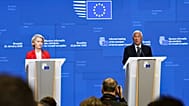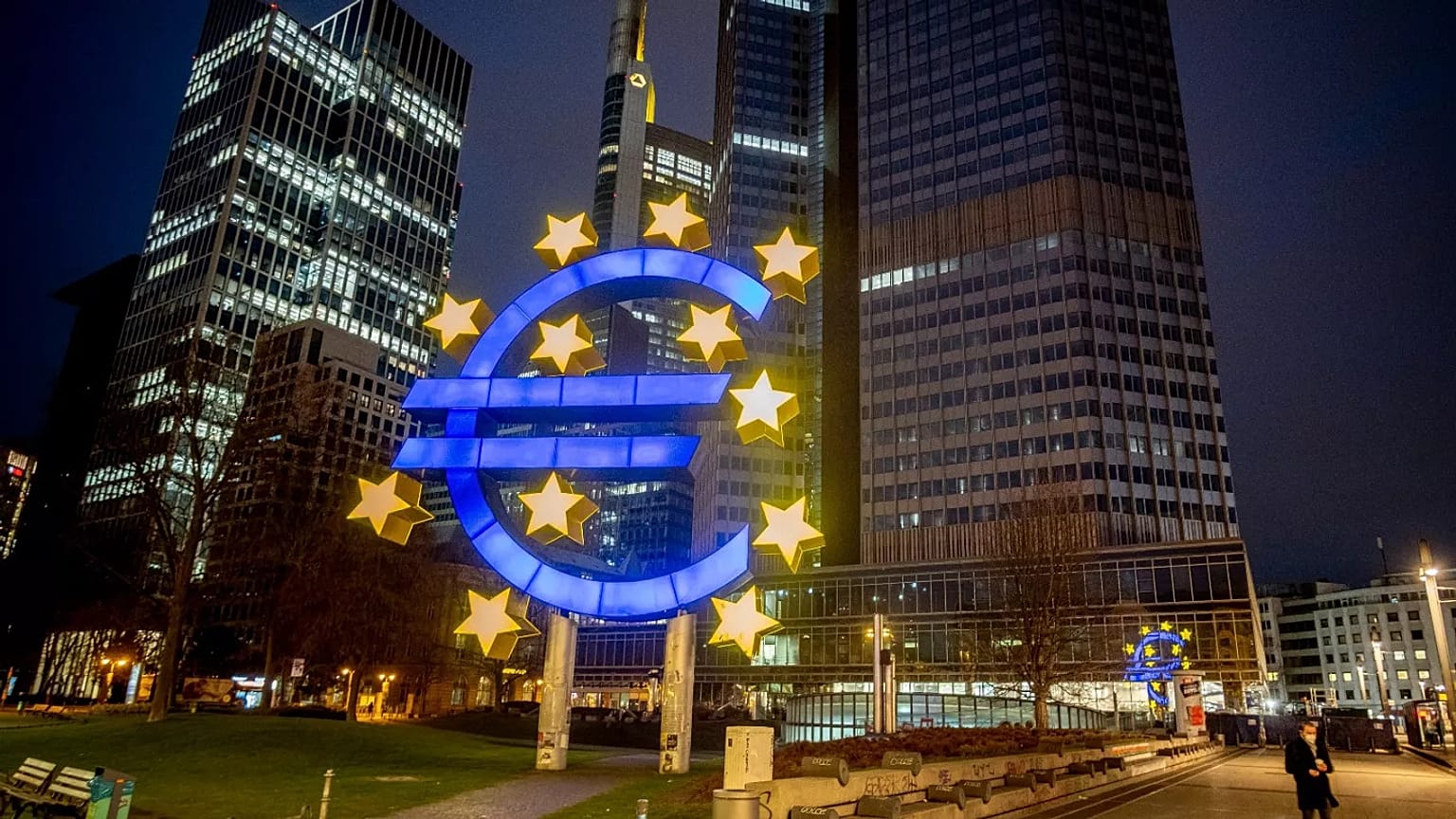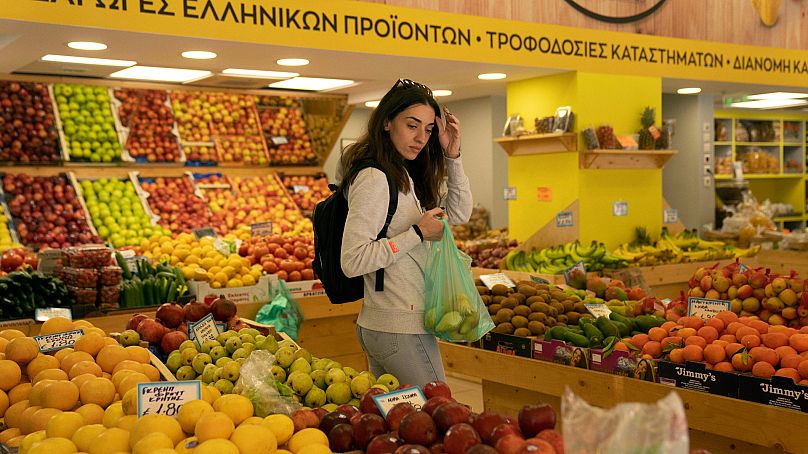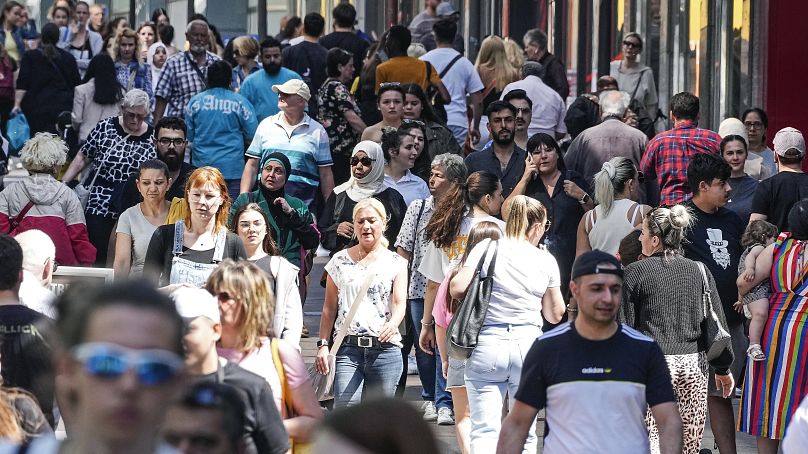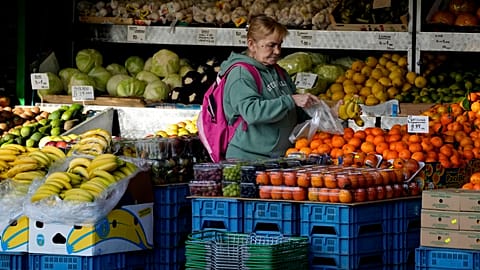Europe's economy entered a technical recession after the eurozone endured two consecutive quarters of decline.
The European economy contracted slightly at the end of last year and beginning of 2023, revised figures showed on Thursday, underlining the impact of the loss of Russian natural gas and high inflation on consumer spending.
Economic output in the 20 countries that use the euro currency dropped 0.1% in both the final three months of 2022 and the first three months of this year from the previous quarter, according to the European Union’s statistics agency Eurostat.
That means the eurozone endured two consecutive quarters of decline, which is one definition of recession often used in political and economic discussions, dubbed a “technical” recession.
However, the economists on a panel that declares eurozone recessions use a broader set of data including unemployment figures and European labour markets have held up to recent economic shocks.
Unemployment is at its lowest level since before the creation of the euro in 1999, hitting 6.5% in April.
Cost of living crisis
The small shift in numbers doesn’t change what households are experiencing, such as rising prices at supermarkets, increased interest on mortgages and stagnating wages.
With inflation and high-interest rates hitting households hard and forcing them to cut back on spending, some analysts say they expect the economy will contract further in 2023. But the Organization for Economic Cooperation and Development said this week that it expects growth of 0.9% in the euro area this year.
The economic crunch came as an energy crisis engulfed Europe last year. Its support for war-torn Ukraine led Russia to cut off most of its natural gas, which the continent relied on to generate electricity, power factories and heat homes.
That fueled sharply higher energy bills for consumers and businesses, spiked inflation to record levels, and raised fears of rationing and blackouts. Governments and utilities scrambled to line up alternative supplies of liquefied natural gas from countries like the US and Qatar, avoiding disastrous utility shutoffs that had been feared last year.
Energy prices had since fallen to levels seen before Russia invaded Ukraine, but persistent inflation and higher interest rates that the European Central Bank is using to combat price spikes have weighed on economic growth by making credit for house purchases or business expansion more expensive.
Inflation is still a concern
The ECB is expected to continue its series of rate increases at its 15 June meeting and keep the door open to raise further beyond that.
Bank President Christine Lagarde this week stressed the need to bring down inflation — which eased to 6.1% in May but is still above the ECB’s goal of 2% — because it is straining everyday people.
Her comments followed recent figures from Germany showing that Europe’s biggest economy unexpectedly shrank in the first three months of this year, marking its second quarter of contraction.
Ireland’s gross domestic product — the total output of goods and services — declined the most in the eurozone at the beginning of the year, falling 4.6%, followed by Lithuania dropping 2.1% and the Netherlands down 0.7%.

